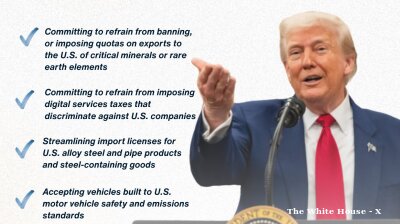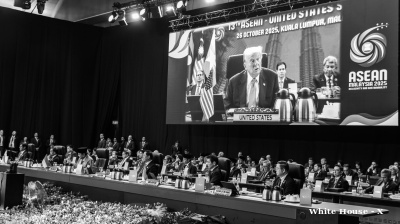Iran's ongoing power shortages are taking a serious toll on daily life, with widespread blackouts affecting both households and industrial units amidst a deepening economic crisis.
The government's approach to managing these challenges has fuelled growing frustration and harm as citizens struggle to navigate frequent and, at times, erratic power blackouts.
While the government and state energy company Tavanir initially provided warnings of scheduled outages, power cuts have become unpredictable in recent weeks, often occurring without notice. Authorities cite insufficient fuel for electricity production as the main reason behind the unannounced blackouts, though this explanation has done little to quell public discontent.
The power crisis arrives at a particularly challenging economic moment for Iran. The nation's currency has plummeted to historic lows against the dollar, with inflation reaching nearly 50 per cent annually. Essential goods have become increasingly expensive, and many businesses are struggling to maintain operations amid rising costs and unreliable power supply.
"These power cuts are incredibly frustrating. We cannot get any work done in the office, and now we never know when the lights are going to go out," said Farnaz, 32, a Tehran resident.
For some, the power cuts represent more than mere inconvenience; they pose serious safety risks. Maryam, 45, recalled a disturbing experience when her young child became trapped in an elevator during an outage. "My son got stuck between two floors. I thought we were going to lose him. These cuts are dangerous. what if it happens to someone who cannot get out?"
Health concerns have also emerged as a significant worry. Milad, 27, described the challenges his family faces as his father recovers from a stroke. "My dad needs medical equipment at home to regain his strength. Those machines do not work without power, and it delays his recovery. I cannot help but think about others who rely on equipment to survive."
The disruptions are severely impacting businesses already strained by economic pressures. Ali, 53, a supermarket owner in Qom, noted the financial burden: "Most of my customers pay with debit cards, so when the power's out, I cannot sell anything. And my refrigerators and freezers are expensive to run. They're constantly under strain when the power goes off."
Small business owners face similar challenges. Marjan, 25, who runs a beauty salon in Pardis, explained: "We use expensive chemicals for hair and nail treatments, and they cannot stay on too long. When the power goes out, our equipment stops working, and we have no choice but to remove the chemicals, wasting time and money."
The combined impact of power shortages and economic instability has heightened public frustration. "They're really pushing people to their limits," said Erfan, 22, a Tehran resident. "It is our right to have access to electricity, especially in a country rich in energy resources. The government's not just cutting power to households, it is shutting down entire industries, which will only make the economic situation worse."
Even education has been affected. Parisa, 18, who attends university in Parand near the airport, spoke about the difficulties of studying during evening hours: "When the power goes out at 4 or 5 p.m., we cannot see anything in class. We end up just leaving. It is impossible to learn in these conditions."
In response to the crisis, President Masoud Pezeshkian's administration has ordered the temporary shutdown of industrial towns across the country as part of an initiative to reduce electricity consumption.
Despite the city and central government's best efforts to reduce power and force the closure of the industrial units many have struggled to understand the erratic nature of the power cuts in some areas.
The closures, confirmed by Mohsen Naqashi, Secretary of the Federation of Food and Agriculture Organisations, required factories in industrial towns to cease operations until the end of the week, however, these power cuts have also continued past the official period in some cases.
Naqashi reluctantly described the directive as a response to ongoing power outages that have disrupted production and left industries in a precarious state.
Naqashi said that the closures have significantly impacted production units and resulted in widespread job losses, adding that many businesses are already struggling with raw material shortages and heavy government bureaucracy. Factory owners have resorted to desperate measures to sustain operations.
The government has also launched a "two degrees less" campaign to combat the ongoing power cuts, urging citizens to lower their thermostats and conserve energy. Ministers have taken to social media to demonstrate their commitment, posting photos of their unheated, unlit offices in a bid to lead by example.
These measures, however, have yet to provide meaningful relief to a population increasingly strained by the dual pressures of power shortages and economic hardship.
News

Milei celebrates resounding victory in Argentina's midterm elections
Argentine President Javier Milei scored a major win for his La Libertad Avanza (LLA) party in Argentina's October 26 midterm legislative elections, as the party obtained approximately 40.84% of the nationwide vote with 99.14% of the votes counted.

Zelenskiy accuses China of aiding Russia’s war effort through industrial and military support
Ukrainian President Volodymyr Zelenskiy accused China of materially supporting Russia’s military-industrial complex, providing key technologies and resources that have enabled Moscow to sustain and scale its war effort against Ukraine.

US Treasury Secretary Bessent blasts “Russian propagandist” special envoy Dmitriev in Washington PR debacle
A trip to Washington by the Kremlin’s special business envoy Kirill Dmitriev days after the US imposed new oil sanctions turned into a debacle after US Treasury Secretary Scott Bessent blasted him as a “Russian propagandist.”

Trump pledges enduring support for Southeast Asia as new trade deals signed
During his visit to Southeast Asia, US President Donald Trump declared that Washington would remain a steadfast ally to the region, as he signed a series of trade agreements with four ASEAN member states.




